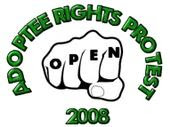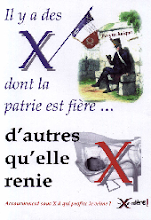 YEMEN TIMES,
YEMEN TIMES,December 27, 2007
Foundlings: Citizens Without an Identity
by Yemen Times Staff
While there are very few foundlings in Yemen, those in this category face legal issues regarding their identity. A report by Azya’a Al-Amri and Rashida Al-Ziyadi.
Foundlings typically are children abandoned, almost always by their mothers, soon after birth. While there’s rarely any intention that the child should die, the mother usually is in such a mental state that she can’t act rationally or in such a position that she is – or feels unable to – approach social services for help.
Such children usually are left somewhere such as a hospital or on a doorstep, where they’ll be found soon. This sets them apart from feral children (where the loss usually is accidental, although some may be abandoned deliberately), from captives, those stolen from their families and those deliberately exposed with the intention that they should die.
“One jailed woman beggar had been renting a house from a local sheikh on the outskirts of Taiz governorate. She told us she gave birth to an illegitimate child after her landlord raped her. She made a complaint to the court that the landlord had raped her and she shouldn’t be jailed with her child,” recounts Ishraq Al-Maqtari, manager of the Legal Protection and Support Project (LPSP), a local NGO.
“This phenomenon [of foundlings] is spreading within fragmented communities, such as marginalized peoples (known as the Akhdam), while prisons have become common places for the availability of foundlings due to the cases of adulteresses, whom we defend in court,” she explains, adding, “Most jailed women are pregnant with illegitimate babies to be added, following delivery, to the other ones available in jails.”
Because Yemen is an extremely conservative society, women who have babies after committing adultery often leave them on the street or in other places out of fear of censorship by their society. Such babies sometimes are left in the garbage after being killed, as was the case in one Sana’a neighborhood where police found a newborn wrapped in a plastic bag next to a garbage bin. The day-old child had been stabbed in the head.
The main problem with being a foundling is that it is a child without an identity, meaning that it carries no family’s surname, such as Al-Mutawakil, Al-Harazi, etc. In Yemen, foundlings simply are given generic names like Mohammed or Ahmed, but no surnames. Consequently, these children lose their relationship with their own family and community because, according to experts, foundlings are expected to deviate from their family, so society disowns them.
According to Yemeni legislation, if a father disowns his child, that child then will be related to his or her mother. This usually happens as a result of divorce and breaking the marital relationship.
If the mother insists that the child is hers, he or she will be related to her family. However, some families refuse to allow disowned children to take their family surname; thus, the mother’s relatives go to the Yemeni government’s Citizenship Authority and register the child with a surname other than theirs.
Employees at the Citizenship Authority sometimes complicate this registration process because, by law, the father – not the mother – is responsible for registering a child. But if the father is absent, the process becomes more complicated.
Col. Abdulaziz Al-Sa’afani, manager of the Legal Affairs Department at the Civil Status Authority in Sana’a, maintains that the 1991 Citizenship Law, which hasn’t been amended up until now, doesn’t contain clear or adequate details regarding foundlings and their issues. He notes that a special committee within the authority suggested amending the law, even forwarding it to the Interior Ministry for approval, but it has yet to be received back.
However, attorney Khalid Al-Shamiri doesn’t believe the Citizenship Law offers a good solution to foundlings’ issues, commenting, “Such a phenomenon is continuous and will continue because we can’t deny its existence, be its causes domestic or international. If we discuss foundlings’ issues from a legal viewpoint, we’ll find that the law doesn’t discuss the issue adequately, thereby leaving the problem unsolved.”
Asked how the problem of foundlings’ identities can be resolved, religious scholar Abdurrahman Qahtan replies, “Foundlings can be given common names such as Mohammed, Abdullah, Abdurrahman or Naji for males, according to many reputable books on legislation and jurisprudence. Those who adopt a foundling can tell him or her that his or her parents died in an accident, for example, after which they then adopted and raised him or her to be their child so that the foundling won’t feel any inferiority.”
Additionally, Qahtan notes, “Citizens may obtain identity documents for any adopted child by summoning two witnesses to appear in court and testify that they adopted and raised the foundling.”
Al-Sa’afani further explains, “The legal procedures are easier for a foundling than for one with parents, particularly as the Citizenship Law states that a Yemeni citizen either is one whose parents both are recognized; whose mother is a Yemeni citizen but his or her father is unidentified or whose parents both are unidentified,” noting that, “A foundling may obtain citizenship and birth documents immediately and easily and there’s a legal article to support this.”
He adds that the law states that Citizenship Authority staff aren’t entitled to indicate on a birth certificate that someone is a foundling and that the spaces for filling in the parents’ names should be left blank. Rather, a foundling should be given three generic names implying no difference or discrimination in the eyes of others, as well as not indicating that he or she is parentless.
Monitoring newborns in hospitalsDr. Abdulmalik Al-Sayyani, director of Taiz’s Al-Thawra Hospital, notes, “Cases involving illegitimate children are few. In fact, the hospital has registered only one or two over the past seven years. As a mother is admitted to the hospital, we immediately ask her the name of the child’s father before she delivers it in order to record it in the logbook because at the time of her admission, no mother experiencing labor dares to lie.”
He continues, “We don’t request marriage contracts because we aren’t a relevant authority, particularly when a woman comes in with her father and gives his surname as the baby’s. If her father is willing to adopt the child, we don’t object to it because we want citizens to adopt such babies.”
The doctor adds, “Undoubtedly, women who conceive illegitimately are perceived to have made mistakes, but we aren’t responsible for their mistakes. That’s the responsibility of criminal investigation bureaus and other security agencies. Our job simply is to help women deliver their babies.”
Al-Sa’afani notes, “We have a Citizenship Authority agent in every hospital to send reports and notifications regarding every birth, whether legitimate or not. The hospital authenticates these documents, which the Citizenship Authority agent then signs in order to facilitate the required procedure for obtaining a birth certificate from any of the citizenship authorities.”
Poverty and tourist marriagesAccording to Al-Maqtari, the existence of rich and poor, family disintegration and immoral crimes are some of the main reasons for foundlings.
“While tourist marriages and marrying a foreigner are legitimate, such phenomena involve numerous problems related to identity cards and procedures at citizenship authorities,” she explains. “At the LPSP ‘s Social Center, we have one case involving an 11-year-old girl whose mother married a man from the Arabian Gulf for a short time. The husband then disappeared with the wife’s relatives knowing nothing about him and leaving the little girl without an identity.”
Dr. Anisah Dukam believes poverty is one reason for the foundling phenomenon because it forces women to deviate, while others are subjected to rape. Lack of education and moral values is another reason, as many girls aren’t raised well in educated societies; thus, they fall victim to deviation and rape. Some Yemeni families even disown their children due to poverty and the inability to feed them.
NGOs neglect foundlingsWhile multiple NGOs are concerned about children’s rights, do they really treat all children equally? NGOs must take into consideration numerous social differences while advocating children’s rights; however, despite the multiplicity of NGOs and organizations working on children’s rights, none were found to include foundlings on their agendas and programs.
For example, programs of the Human Rights Information and Training Center don’t include foundlings or disowned children. Likewise, the Shawthab Foundation for Childhood and Development is a local NGO expending much effort to prevent child trafficking, but it also does nothing regarding foundlings’ issues.
However, the foundation’s Secretary-General Maryam Ibrahim Al-Shawafi notes that in the coming days, foundation staff will establish a vision for programs focusing on foundlings and seeking to improve the situation for deprived children in several government institutions, such as the Orphans Care School and the like.
Al-Shawafi says, “Speaking as a children’s worker, I don’t believe foundlings have committed any sin; rather, they are innocent children paying the price for crimes committed by adults. Such cases aren’t new – they’ve existed since ancient times – but our main concern is how to increase public awareness of the phenomenon and how to reform foundlings’ situations within alternative families in order for this group of children to adapt with other families and surroundings.”
She continues, “Civil community organizations can do something in this regard; however, decision makers are more able to suggest workable solutions to improve foundlings’ situations. Additionally, the community is responsible to provide solutions to this problem by increasing awareness among schoolchildren, who know nothing about the phenomenon.
“It’s noticeable that the family plays no role in this respect amid weak social relations, whereas awareness about foundlings should be spread at various venues, such as schools, mosques and men’s and women’s gatherings. Mosque preachers should discuss a variety of social problems, including the foundling phenomenon, during Friday sermons and suggest workable solutions to persistent problems in their communities,” Al-Shawafi proposes.
Family House for Child CareA facility called the Family House for Child Care, located on Hadda Street in Sana’a, houses as many as 50 foundlings, with those in charge behaving like they are the real parents of the disowned children.
Executive Director Saddam Al-Dhaibani, explains, “The house was established following a field study conducted as a reaction to media reports saying that stray children in Yemen are subjected to beating and oppression due to lack of shelter, which, even if available, are similar to jails. The situation encouraged us to establish the house and play a pioneering role in this respect.”
Likewise, Dukam, who helped found and now manages the Guidance and Psychological Research Center affiliated with Taiz University, says, “The Safe Childhood Center isn’t a facility offering shelter for foundlings; rather, having studied the reasons forcing children to become strays, its job is to return them to their families. The center has received only one case involving a little girl, but we only learned that she was a foundling after she fled the center.”
Most of those interviewed for this story agreed that Yemeni society must show respect for foundlings and assist them to lead new lives and forget their fate. Government agencies must play a greater role in this respect, facilitating procedures for foundlings to obtain birth certificates and identity documents.
As attorney Al-Shamiri notes, “The Western world has preceded us, conducting studies and suggesting possible solutions to the foundling phenomenon. While it’s important for our ideology to prosper, it’s also important for us to benefit from others’ experiences and apply their useful studies to our Muslim community, as this will help lawmakers and legislators bring about workable solutions befitting our real-life situations, whereas shifting attention away from the phenomenon may exacerbate it.”
Link to article























